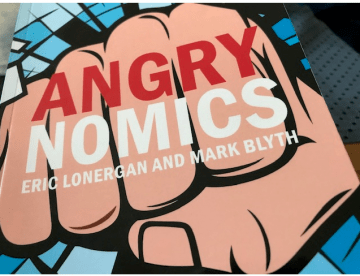Philip Coggan in Medium:
 The combined total of inflation and unemployment used to be known as the “misery index”: Jimmy Carter cited it when he was campaigning in 1976 against Gerald Ford for the presidency. But the index was even higher in 1980, dooming Carter’s re-election bid. Barack Obama reduced the misery index during his two terms of office; indeed of all the Presidents since 1945, only Harry Truman left office with a lower misery index. But that didn’t seem to make voters happy; although Hillary Clinton (Obama’s party successor) won the popular vote, Donald Trump took enough key states to be elected. Similarly in 2016, British inflation was low and unemployment had been falling for years, yet voter anger resulted in Britain voting to leave the EU.
The combined total of inflation and unemployment used to be known as the “misery index”: Jimmy Carter cited it when he was campaigning in 1976 against Gerald Ford for the presidency. But the index was even higher in 1980, dooming Carter’s re-election bid. Barack Obama reduced the misery index during his two terms of office; indeed of all the Presidents since 1945, only Harry Truman left office with a lower misery index. But that didn’t seem to make voters happy; although Hillary Clinton (Obama’s party successor) won the popular vote, Donald Trump took enough key states to be elected. Similarly in 2016, British inflation was low and unemployment had been falling for years, yet voter anger resulted in Britain voting to leave the EU.
Clearly, then, something fundamental has changed about the global economy. Two conclusions are often drawn. First, “debt doesn’t matter”; governments seemingly can borrow without limit, as many on the left would now argue. Second, we have moved away from the idea that elections are settled by economics alone: cultural divides are more important.
A fascinating new book, Angrynomics, by Eric Lonergan and Mark Blyth, analyses what has been happening, and gives a highly plausible explanation.
More here.
